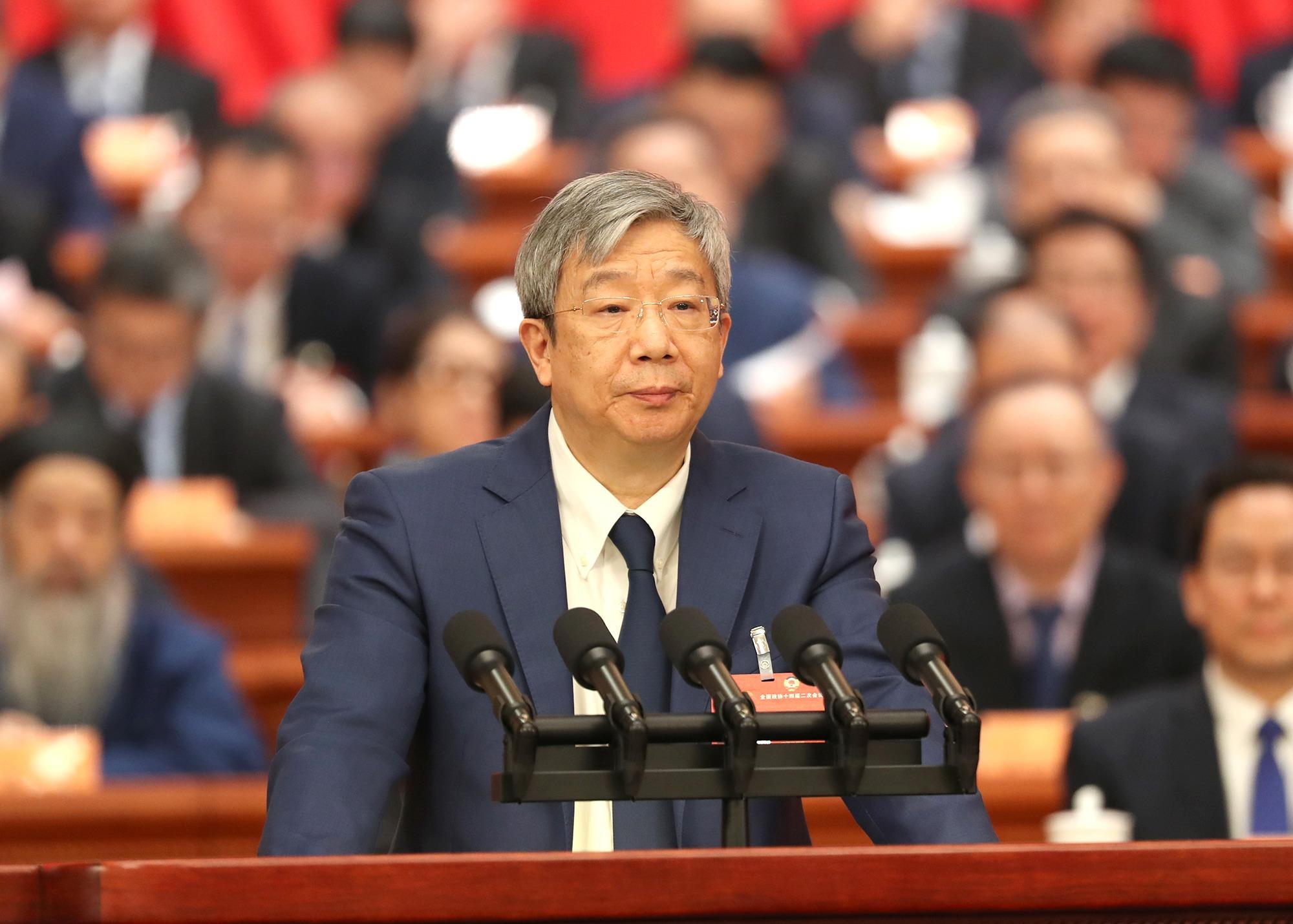 Yi Gang, deputy director of the Committee on Economic Affairs of the 14th National Committee of the Chinese People's Political Consultative Conference, delivers a speech during the ongoing two sessions on March 7, 2024 in Beijing. (ZOU HONG / CHINA DAILY)
Yi Gang, deputy director of the Committee on Economic Affairs of the 14th National Committee of the Chinese People's Political Consultative Conference, delivers a speech during the ongoing two sessions on March 7, 2024 in Beijing. (ZOU HONG / CHINA DAILY)
Chinese policymakers and political advisers during the ongoing two sessions have stressed the need to attract more foreign investment in the country's financial sector, leading to discussions on further liberalization moves and reinforcing global financial institutions' confidence in the Chinese market.
Yi Gang, deputy director of the Committee on Economic Affairs of the 14th National Committee of the Chinese People's Political Consultative Conference, the country's top political advisory body, said on Thursday that China needs to promote a steady and rising share of foreign investment in the banking sector and capital market.
Yi, former governor of the People's Bank of China, the country's central bank, said the proportion of assets held by foreign capital in China's banking sector is around 1 percent, while foreign ownership in both the country's stock and bond markets stands at about 3 percent.
READ MORE: Action needed to attract foreign investment
"We should focus on advancing high-standard opening-up of the financial sector while ensuring national financial and economic security," Yi said at a news conference, adding that China should actively participate in the drafting and formulation of international financial rules.
Pan Gongsheng, the PBOC governor, said on Wednesday that China will further attract foreign capital into the country's financial sector and support Shanghai in building an international center for renminbi financial asset allocation and risk management.
Data from the central bank showed that overseas investors bought a net 1.8 trillion yuan ($250 billion) of Chinese bonds in the past 12 months to end-January, while the country's foreign exchange reserves stood at $3.23 trillion as of the end of February, up by $6.5 billion from a month earlier.
Despite the increases, Zhang Yichen, a member of the 14th CPPCC National Committee and chairman and CEO of CITIC Capital Holdings Ltd, told China Daily that the proportion of foreign holdings in China's stock and bond markets — both currently about 3 percent — remains the lowest among major economies.
Citing that long-term capital remains an important force driving the Chinese economy, Zhang said he recommends that authorities regard 3 percent as a warning line for foreign investment in Chinese stocks and bonds and that they take measures to gradually lift the proportion to a more favorable range of 5-10 percent.
Specific measures that can be considered, he said, include encouraging foreign investors, such as fund managers, to boost their stakes in — and potentially acquire control of — some A-share listed companies, as well as introducing a negative list that would permit foreign investors to acquire control of A-share companies in sectors where it is not prohibited.
ALSO READ: Shanghai rising magnet for foreign investment
"We look forward to continuing to participate in the new journey of the two-way opening of China's financial market," said Cary Zhang, managing director and general manager of Wellington Private Fund Management (Shanghai) Ltd, a subsidiary of Boston-based global investment firm Wellington Management.
Zhang said Wellington views the Chinese market as an area of opportunity with an attractive risk-reward profile based on current valuations, and will continue to expand its investment and client coverage in China, with a particular focus on such sectors as renewable energy and healthcare.
As a reflection of foreign investors' rising confidence in Chinese equities backed by the A-share market recovering from its recent slump, Goldman Sachs has maintained an "overweight" rating on A shares while UBS Securities expects an 8 percent growth in earnings per share performance for the CSI 300 Index this year.
Rani Jarkas, chairman and CEO of Cedrus Group, said China has done a good job of further opening the financial sector by improving relevant rules and regulations, and the Swiss international financial group is a beneficiary of it.
Fan Feifei contributed to this story.



